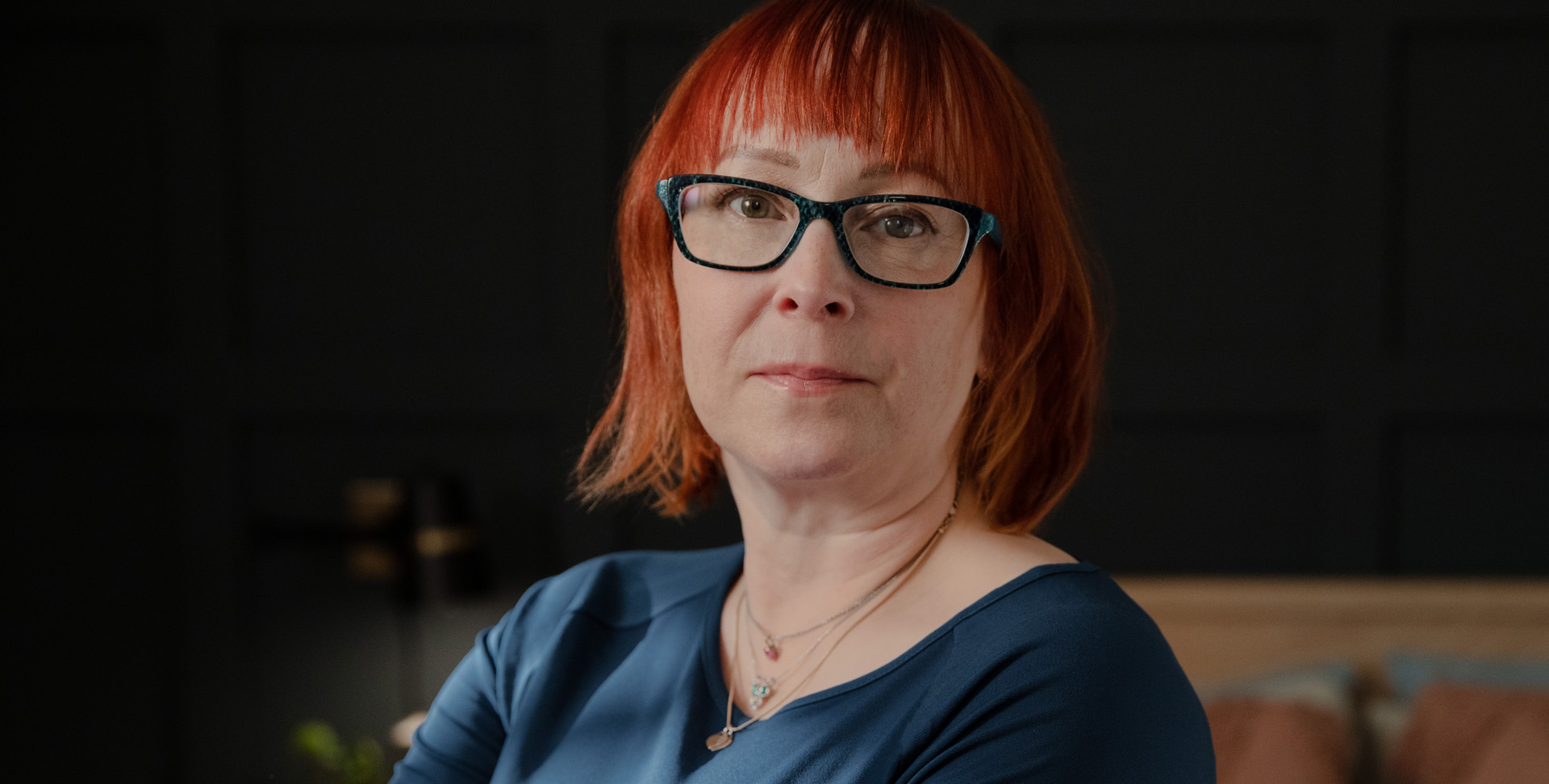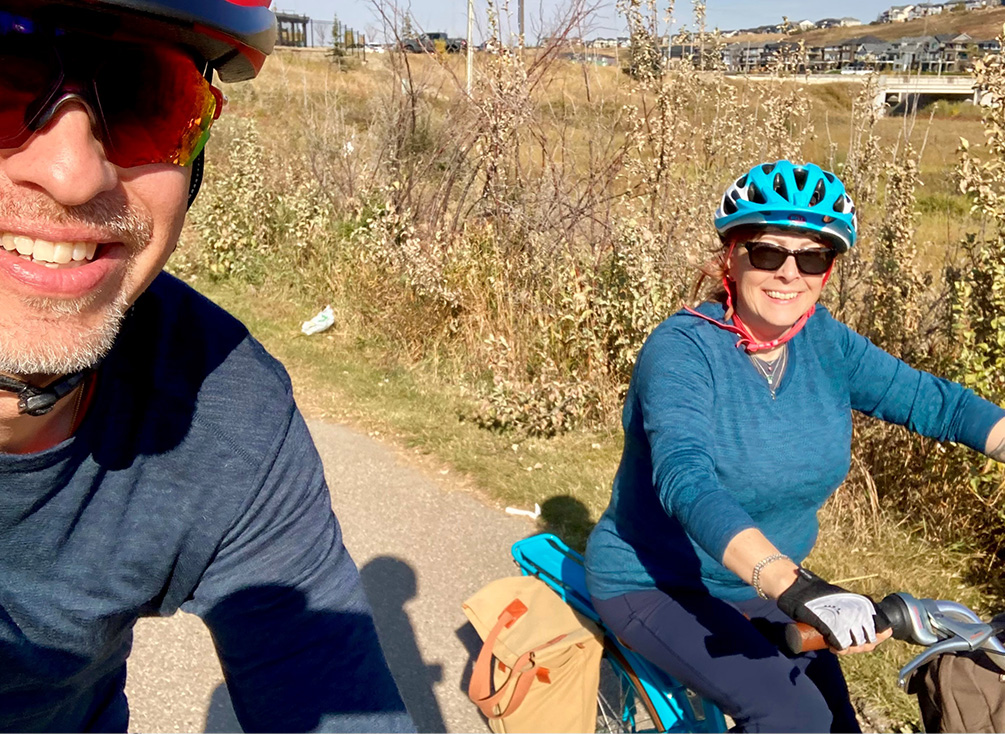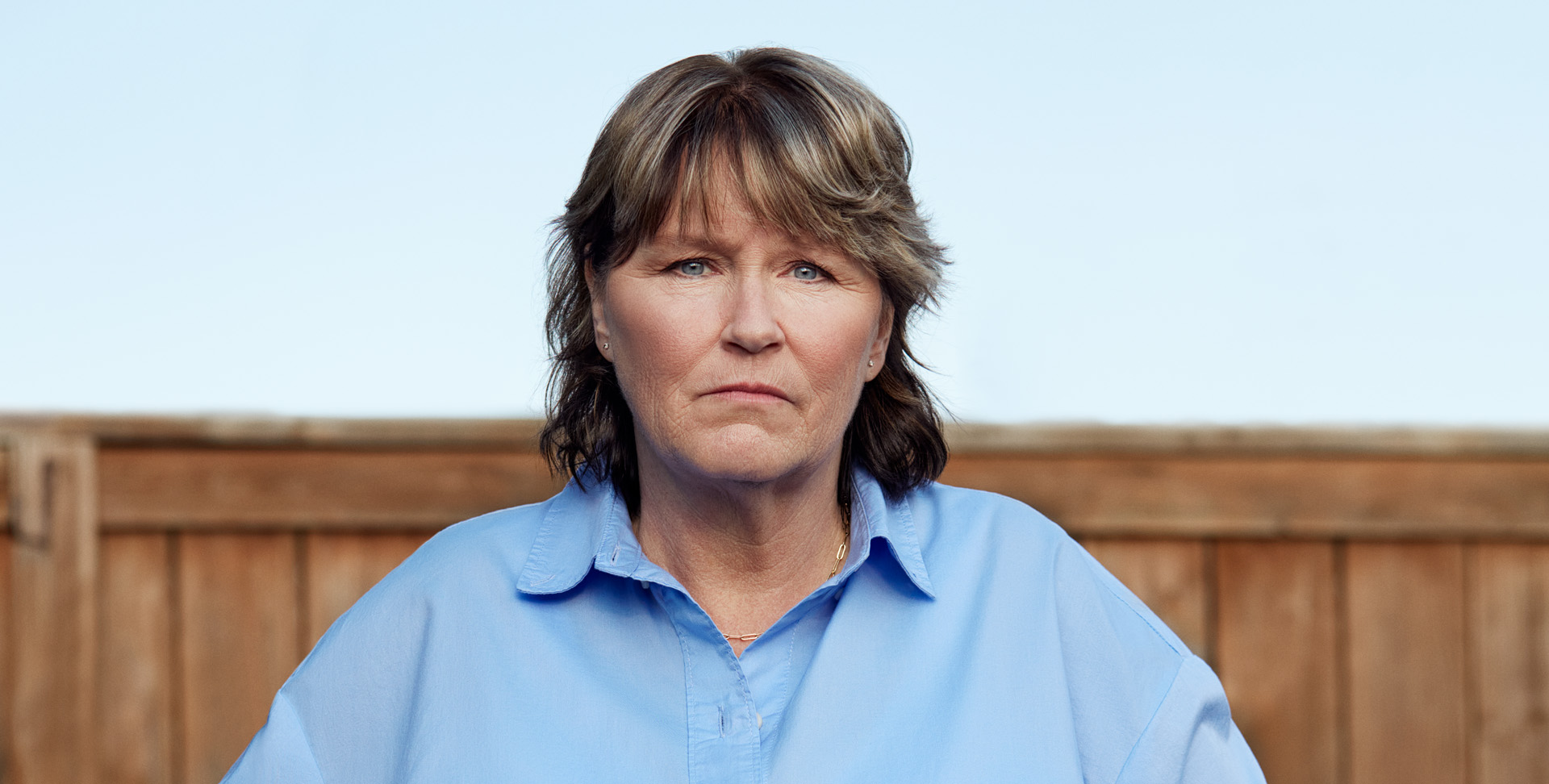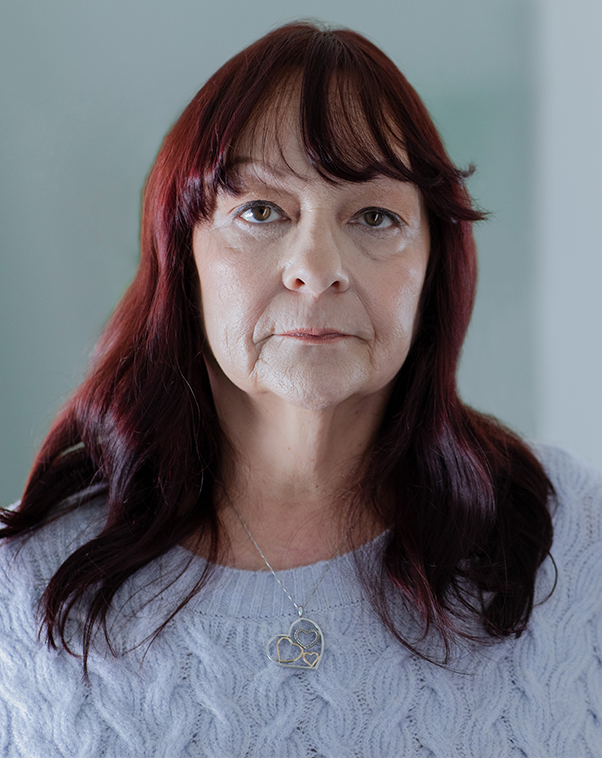
Saving a mother’s heart
It was almost too late when Christina learned that pregnancy complications had increased her risk of heart disease
Chapter 1 A shocking diagnosis
“You’ve had a heart attack, and it was probably three years ago.”
Christina Stuwe was stunned to hear this from the doctor doing her angiogram. There was more. The test showed three blocked arteries in Christina’s heart; to survive, she needed bypass surgery.
Christina, then 47, and her husband, Sven, had pushed hard for this angiogram, a test that uses x-rays to examine blood vessels around the heart that have been injected with dye. The Calgary couple wanted answers about the symptoms Christina was experiencing, including burning sensations in her upper back, pain and numbness in her arms and occasional racing heartbeats.
- Learn more about the gaps that threaten women’s heart and brain health.
Christina’s family doctor had referred her to a cardiologist, and she had already been through several tests for heart issues. Most were inconclusive, but an echocardiogram had showed that the lower left chamber of her heart was beating at only 35% capacity.
The cardiologist wasn’t greatly concerned; he recommended watching and waiting for a year. But when the Stuwes insisted on further testing, he ordered the angiogram.
Devastated at first by the results, Christina realized she knew when the heart attack had happened. Like many women, she didn’t experience the typical “Hollywood” heart attack. “I didn't have any chest pain. What I did have, and what developed from that day on, was my body's version of angina.”
That burning and pain in her arms and upper back finally had an explanation. Christina felt some relief but admits, “There was anger. And there was frustration.”
Why had it taken three years to diagnose her with heart disease?
Chapter 2 A difficult pregnancy
Rewind to 2008, when Christina was pregnant for the first and only time. In her sixth month, her doctor told her she had gestational diabetes and gestational hypertension (high blood pressure).

Christina and her husband, Sven, had to push for tests to explain the symptoms she was experiencing.

Today Christina is doing well.

14 years after giving birth to her son, Christina is encouraged by new research on the link between pregnancy issues and heart disease.
Christina didn’t know it then, but these conditions are among a group of pregnancy complications that increase a woman’s risk of cardiovascular disease later in life. An estimated 15-20% of women in Canada experience one or more of these conditions, which also include pre-eclampsia.
All Christina knew was that she had to test her blood sugar four times a day and give herself regular insulin shots, and monitor her blood pressure with help from a visiting nurse.
Finally, she gave birth to a healthy son. Her blood sugar and blood pressure returned to normal levels, so she could forget about needles and focus on being a mother.
Nobody involved in Christina’s care before or after the birth advised her that she might face an increased risk of heart disease in future. “The only thing I was told was that I may develop diabetes or an issue with sugar when I was older. There was no mention of my heart — nothing. Nada. Zero. Zip.”
Years later, when she started having the symptoms that eventually brought her to the cardiologist, nobody asked if she had experienced any pregnancy complications.
Chapter 3 Bypass and beyond
The almost five months Christina waited for bypass surgery were filled with worry about another heart attack. “I was having angina going upstairs. Every three steps I would have to stop and take a deep breath.”
Fortunately her surgeon, Dr. Teresa Kieser at Calgary’s Foothills Hospital, listened to Christina’s fears and reassured her. When Christina fretted about having a scar that would show above her neckline, Dr. Kieser made a note to keep the incision as low as possible.
The operation went well and Christina benefitted afterwards from a cardiac rehabilitation program. But she still wondered why this had happened to her. She knew she might carry a genetic risk of heart disease from her father. For that reason, she had always kept close watch on her blood pressure and cholesterol; both were always in the normal range (except during her pregnancy).
It wasn’t until she saw a 2018 Heart & Stroke report that she realized her pregnancy complications should have been a big red flag.

Christina’s surgery was a success and she went through cardiac rehabilitation. She’s now working to support mothers like her by spreading awareness about their risk of heart disease after pregnancy.
Today Christina is doing well and advocating to spread the word to other women. “I'm on a panel right now that is developing a questionnaire to give to mothers who have issues in pregnancy like mine, so that they're aware of the fact that you could have heart issues down the road.”
She’s encouraged that Heart & Stroke researchers like Dr. Kara Nerenberg and Dr. Padma Kaul are investigating ways to prevent future cardiovascular disease in women with pregnancy conditions like she experienced.
Christina would like to see women who experience pregnancy complications get screened for signs of cardiovascular disease. She’s determined to do whatever she can to help other women take care of their hearts.
- Get our report on the inequities that put women at risk.
- Learn about women’s unique risk factors.

Join the fight to end heart disease and stroke.
Related stories

A passion to beat heart disease
After losing five siblings, Heather Evans is fighting with everything she’s got

Protecting heart health after menopause
Dr. Glen Pyle’s discoveries will reduce heart disease in older women — and help men too

Back from the brink
Michelle tried for months to get her symptoms taken seriously. Then she had a heart attack
